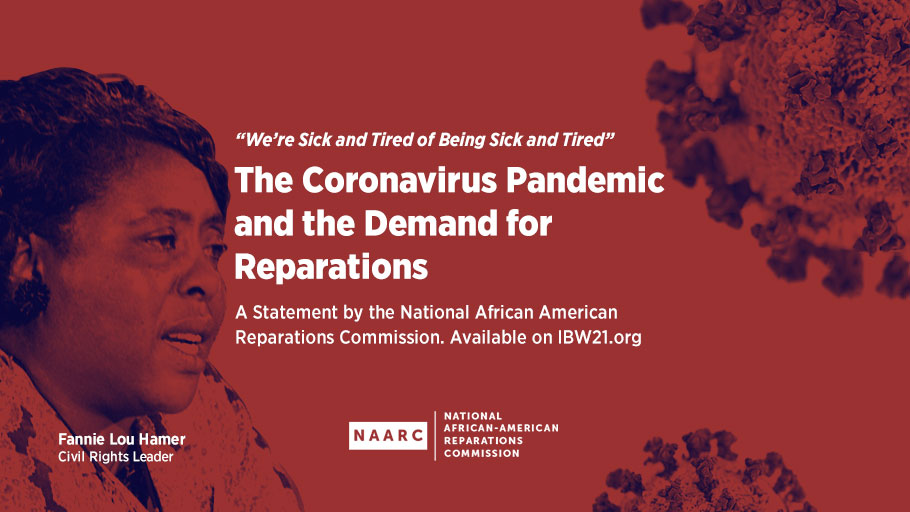The novel Coronavirus Pandemic has revealed the longstanding disparities in health conditions for African Americans in the United States. Chicago Mayor Lori Lightfoot said she was “shocked” and “disturbed” upon learning that black Chicagoans, who make up 30 percent of the city’s residents, accounted for 70 percent of the fatalities. “Those numbers take your breath away,” she declared. These statistics were “among the most shocking things I think I have seen as mayor.” However, the situation in Chicago corresponds with what is occurring in cities and states throughout the nation. Detroit, Milwaukee, New York, and Newark report similar disparities in rates of infections and fatalities from the Pandemic. The state of Louisiana has a population of 4.6 million, and California has 39.5 million residents. Yet, as of April 6, 2020, California has reported less than 500 deaths from Covid-19, while Louisiana has over 850. African Americans are 34 percent of Louisiana’s population, but are 70 percent of the fatalities, in a state known for its unwillingness to prioritize health and welfare benefits for its residents.
Many political leaders have expressed their dismay about the health conditions that underlie these statistics, yet anyone at all informed about health disparities for African Americans would not be surprised. The Coronavirus Pandemic has brought into bold display disparities that have existed and remained unaddressed since the founding of the Republic. African Americans have complained bitterly about their lack of access to adequate health care for decades. The National African American Reparations Commission and other champions of reparatory justice believe resources to eliminate health disparities must be a central component of reparations for African Americans. Click here to see list of NAARC Commissioners.
I’m sick and tired of being sick and tired. Fannie Lou Hamer, 1964“I’m Sick and Tired of Being Sick and Tired” is the poignant phrase made famous by the great civil rights activist, Fannie Lou Hamer. It not only describes the personal health challenges she faced throughout her life in Mississippi, but also conveys the past and current health conditions facing far too many African Americans. Under the slaveholders’ regime and in the era of Jim Crow, the high child and adult mortality rates, compared to white Americans, was attributed to the poor diets and lack of access to adequate health facilities. After the Civil War, just as the public schooling provided African Americans was “usually separate” and “rarely equal,” this was the case with health services as well. White physicians and other health professionals often refused to treat African Americans as patients; there were few black doctors and nurses, and even fewer hospitals. Harriet Washington’s prizewinning book on Medical Apartheid (2007) documented African Americans’ position at the lowest rung on the health care ladder in the United States from the eighteenth century, which meant that they were much more likely than whites to suffer and die from preventable diseases, and when treated, they usually ended up in under-resourced, segregated health facilities.
The health disparities have persisted into the twenty-first century where African Americans are 80 percent more likely to be diagnosed with diabetes than whites; and the men are 30 percent and women 60 percent more likely to have high blood pressure. African American women are twice as likely to die from breast cancer than white women; and black men have a 50 percent greater chance to die from heart failure than white men.
Historically, poverty, housing discrimination, unemployment, food deserts and mass incarceration are also chronic conditions that make vulnerable populations susceptible to dangerously high risks for infection and deaths by viruses like COVID-19. African American children suffer disproportionately from childhood asthma and high rates of obesity. Some medical researchers have used the phrase “weathering” to describe the inordinate toll that everyday trauma and discrimination has taken on African Americans’ physical and mental well-being. And that includes the impact of the prejudice and inadequate treatment they face when encountering medical professionals.
Read full article →





